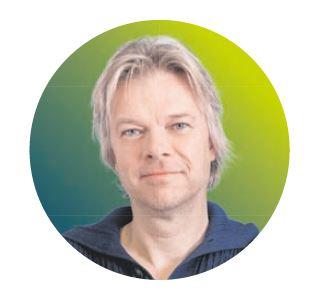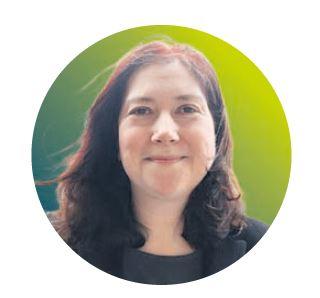Exploring Habitable Worlds – A Tagesspiegel Feature from October 11 2025
Frank Postberg, Professor of Planetary Sciences at Freie Universität Berlin
Lena Noack, Professor of Planetary Geodynamics at Freie Universität Berlin
News from Oct 13, 2025
The Planetary Sciences and Remote Sensing is featured in the latest issue of Tagesspiegel – addressing the big question: Are there habitable worlds out in space? From icy moons like Enceladus and Europa in our solar system to distant exoplanets, the article delves into the search for places that could have the conditions to support life.
Professor Frank Postberg especially researches the Saturn moon Enceladus – a moon at the edge of the solar system with a ocean below its icy crust. At least five other ocean moons are known in our solar system. But Enceladus is special because its so-called "cryovolcanoes" provide almost direct access to its water: gases and particles from deep below are expelled through cracks in the ice shell directly into space – likely for thousands of years.
Professor Lena Noack studies exoplanets – planets outside our solar system. While it was once assumed that only a few stars are orbited by planets, today we know that at least half of all stars have at least one planet. So far, there is only limited data of the atmospheres of these very distant celestial bodies. “We try to understand on which planets we can expect habitable conditions, but also what else besides water and carbon is necessary for life. Sulfur, for example, nitrogen, and oxygen,” says Lena Noack.
Contact:
Prof. Dr. Frank Postberg, Freie Universität Berlin, Department of Earth Sciences, Institute of Geological Sciences, Planetary Sciences and Remote Sensing Group, Email: frank.postberg@fu-berlin.de
Prof. Dr. Lena Noack, Freie Universität Berlin, Department of Earth Sciences, Institute of Geological Sciences, Planetary Sciences and Remote Sensing Group, Email: lena.noack@fu-berlin.de

